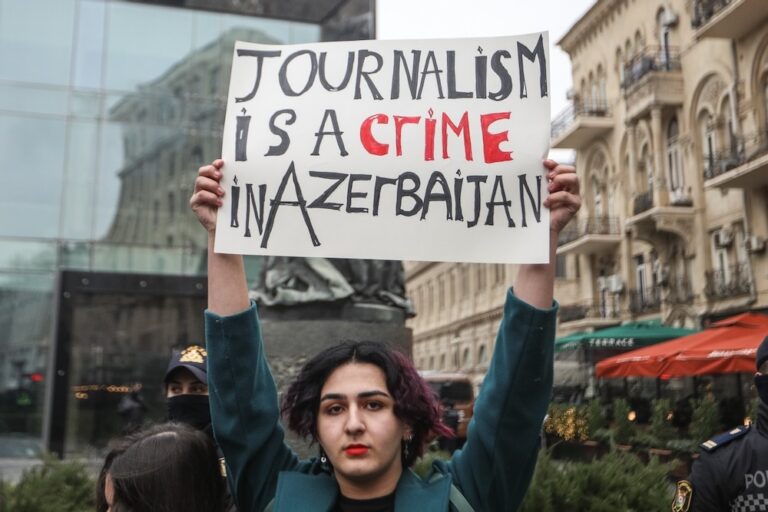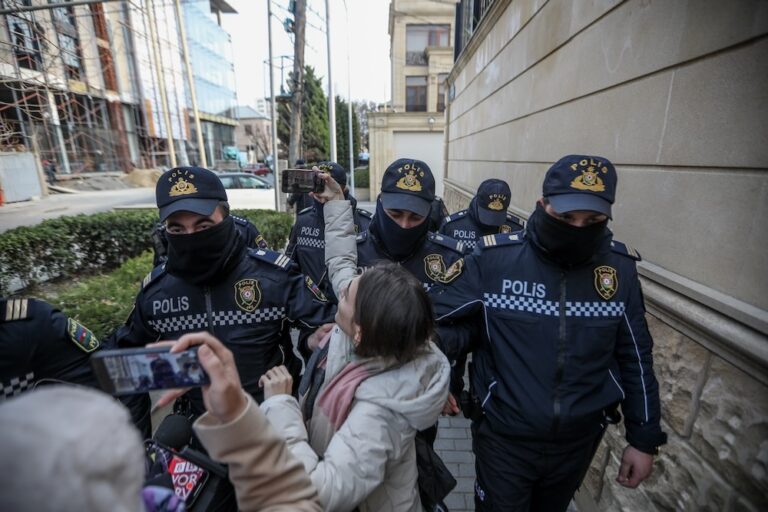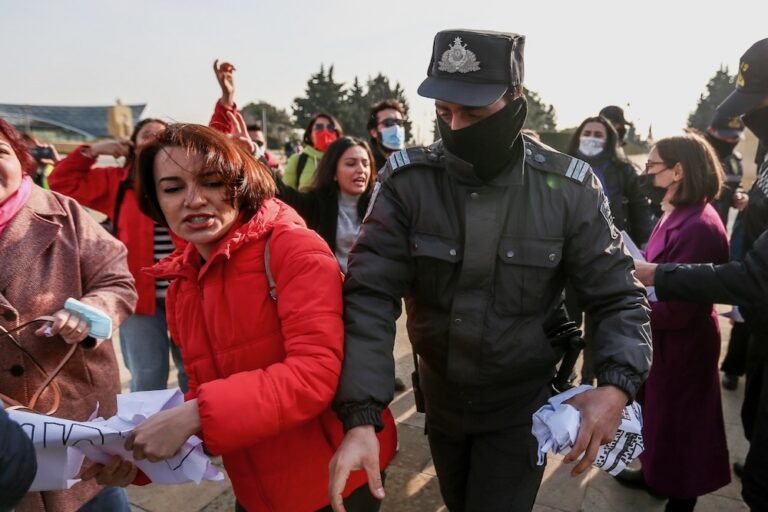(IRFS/IFEX) – IRFS vehemently condemns the Republic of Azerbaijan’s State Border Service and Chief Prosecutor’s Office for their refusal to let “Azadlig” newspaper correspondent Agil Khalil leave the country. He was denied exit on three occasions on 10 and 11 May 2008. Such actions are illegal and a gross violation of Khalil’s fundamental rights. He […]
(IRFS/IFEX) – IRFS vehemently condemns the Republic of Azerbaijan’s State Border Service and Chief Prosecutor’s Office for their refusal to let “Azadlig” newspaper correspondent Agil Khalil leave the country. He was denied exit on three occasions on 10 and 11 May 2008. Such actions are illegal and a gross violation of Khalil’s fundamental rights. He currently faces grave danger.
On 10 May, Khalil was scheduled to fly from Baku to Istanbul, Turkey to visit relatives in an attempt to relieve some stress and get out of the limelight following the recent violent attacks to which he has been victim. However, the Border Service refused to let the journalist through passport control, claiming he had unresolved issues with the Prosecutor’s Office. Khalil then attempted to get to Turkey by land via Georgia. On the night of 10 May he traveled 500 km, across Azerbaijan, and tried to leave the republic at two border crossings in the northwestern Azerbaijani regions of Balaken and Zagatala on the morning of 11 May. There too he was thwarted by the Border Service on the same grounds.
Khalil told IRFS: “The government is directly behind this order to keep me in Azerbaijan. If anything happens to me here my blood will be on their hands.” In response to a question about why he crossed the country to other border stations after being turned away at the airport, the journalist explained: “After being turned away at the airport, I wanted to see if this was just some isolated incident or a pervasive high-level campaign against me. At all three places I demanded a written statement explaining why I wasn’t allowed to cross the border, but the border guards refused.”
IRFS notes that there are absolutely no legal grounds on which Khalil can be kept in Azerbaijan. Not allowing Khalil to leave the country is a violation of point 3 of Article 28 of the Republic of Azerbaijan’s Constitution, which envisages the Right to Freedom, including to “travel abroad,” and Article 2 of Protocol 4 to the “Convention for the Protection of Human Rights and Fundamental Freedoms securing certain rights and Freedoms other than those already included in the Convention and in the first Protocol thereto” (an official addition to the European Convention of Human Rights), which grants people the right to “freedom of movement.”
Regarding claims that Khalil has unresolved issues with the Prosecutor’s Office, IRFS notes that these can only be related to the countless attacks to which the journalist has been subjected in recent months. In all of these cases he was the victim, not the perpetrator, and he has no criminal cases pending against him.
The refusal to let Khalil leave Azerbaijan comes on the heels of acts of violence against the journalist. On 22 February, Khalil was beaten by two men, including an officer from the National Security Ministry, while trying to investigate the cutting down of trees in the Zeytun Baglari (Olive Gardens) in Baku. He was then stabbed in the chest on 13 March, and targeted by a vicious government-orchestrated black PR campaign on a local television channel. On 7 May, Khalil reported that someone attempted to push him in the path of an oncoming subway train at the 28 May Metro Station; shortly after this two people attempted to abduct him while he was walking down the street.
IRFS calls on the government of Azerbaijan to take action for immediate reversal of the illegal decision not to let Khalil leave the country, to institute a criminal case against those behind the violation of Khalil’s fundamental freedoms and rights, and to take stringent measures to ensure the journalist’s safety. IRFS also calls on the international community to demand an end to persecution of journalists in Azerbaijan and the appalling violations of fundamental human rights in this country; such violations in European territory make a mockery of treaties, agreements and conventions intended to eliminate these kinds of incidents.
Updates the Khalil case: http://ifex.org/en/content/view/full/93524


